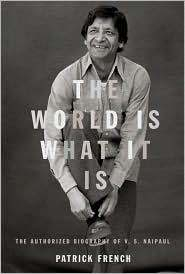Each day leading up to the March 12 announcement of the 2008 NBCC awards, we highlight one of the thirty finalists. Today, NBCC board member Oscar Villalon discusses Dexter Filkins’s The Forever War (Knopf).
As the war in Iraq heads into its sixth year, and as the U.S. government prepares to increase the number of its troops in Afghanistan, it’s clear that the story of America’s heavy presence in the Islamic world is far from over. Yet Dexter Filkins may have set a defining emotional tone for relating what is to come: a tristesse borne from witnessing humankind behave so badly and so bravely, from seeing how humanity gets torqued into something animal-like, despite the hopes and strategies of the supposedly best-informed and best-intentioned.
The Forever War dramatizes the riveting histories recently published relating to the war abroad, and, interestingly, complements Filikins’s fellow former New York Times foreign correspondent Chris Hedges’s book, War Is a Force That Gives Us Meaning. As in Hedges’s book, Filkins depicts the inexorable erosion of sanity and morality that characterize a war-torn region, and he shows us how journalists operate in those conditions and to what personal detriment. He gives us the on-the-ground pictures from all the arenas that would serves as stops along the path to mayhem that defines Iraq and Afghanistan: the Taliban’s ascension, the World Trade Center towers destruction, the Iraq invasion, which became an occupation that then festered into a civil war. But Filkins does so through vignettes hinting at the epic scale of grief and hatred all around him; an ocean of ironies and folly too numerous to catalog, though Filkins tries his best.
What he does do perfectly is give us a sense of the personalities—of the individuals—who figure large and small amid the violent conflict. His chapter on Ahmad Chalabi, for example, is disarming in its intimate and frank insight. The ruthless political operative, the man who did so much to convince U.S. leadership that extinguishing Saddam Hussein would herald a better Iraq, is now the victim of his own ambitions. He yearns to rule a country that falls apart more and more by the day. For all his brilliance and charm, Filkins shows us, Chalabi is more powerless in present Baghdad than he was as an Iraqi exile in the United States. “Gamesman, exile, idealist, fraud,” Filkins writes of him. “When I looked into Chalabi’s eyes and saw the doors and mirrors opening and closing, I knew that I was seeing not just the essence of the man but of the country to which he’d returned.”
The failure of the U.S. occupation he sees reflected in his surroundings while going out for a routine run in Baghdad, along the Tigris River. As the years pass, and as running for exercise proves to be more and more reckless (and not just because of the ungodly summer heat), we see in miniature how badly things have deteriorated. The American-constructed park he favors for his runs gets shabbier and smaller; it becomes surrounded by razorwire and checkpoints. By 2007, the “capital was a free-for-all; it was a state of nature. There was no law anymore, no courts, nothing—there was nothing at all.” But of course there was something, something The Forever War documents so lyrically. There were (and are) people—Americans and Iraqis—trying desperately to stave off oblivion. It would appear they will continue to do so for who knows how long into the future.


